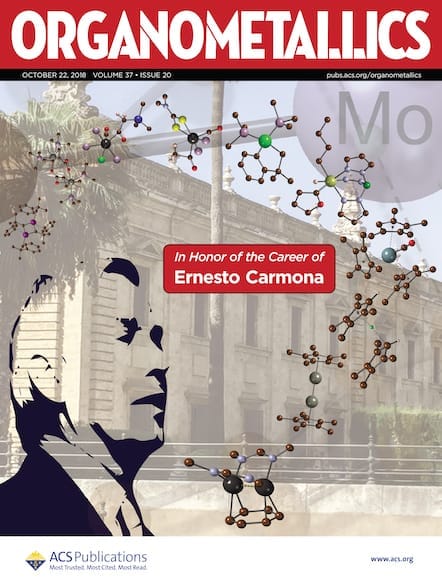Tianning Diao, Assistant Professor of Chemistry at New York University, is the 2018 recipient of the Organometallics Distinguished Author Award. Professor Diao, a 2017 NSF CAREER Awardee, focuses her research on developing new transition metal catalysts and studying mechanisms of catalytic reactions. For example, Diao’s group recently published the first structural characterization of palladium agostic […]

Tianning Diao, Assistant Professor of Chemistry at New York University, is the 2018 recipient of the Organometallics Distinguished Author Award. Professor Diao, a 2017 NSF CAREER Awardee, focuses her research on developing new transition metal catalysts and studying mechanisms of catalytic reactions. For example, Diao’s group recently published the first structural characterization of palladium agostic complexes. These are intermediates in polymerization reactions that have eluded structural characterization and been long sought after by synthetic chemists. This finding offers important insight into chemical bonding.
“Tianning is being recognized in part for her group’s paper on the structural characterization of β-agostic integration in palladium complexes that is relevant to catalytic reactions such as ethylene polymerization and the Heck reaction, Professor Paul J. Chirik, Editor-in-Chief of Organometallics says. More broadly, Chirik notes her work in the area of homogeneous catalysis, as well as her contributions in understanding carbon-carbon bond forming reactions in nickel catalysis, including C-C reductive eliminations and ene-yne cyclizations. “Tianning’s combination of catalyst development, mechanistic studies, and applications toward synthesis makes her an outstanding recipient of this honor and highlight the vibrancy and breadth of organometallic chemistry,” he says.
Read Some of Tianning Diao’s ACS Publication Articles
Nickel-Catalyzed Reductive Cycloisomerization of Enynes with CO2
J. Org. Chem., 2017, 82 (13), pp 6895–6903
DOI: 10.1021/acs.joc.7b01034
Bimetallic C–C Bond-Forming Reductive Elimination from Nickel
J. Am. Chem. Soc., 2016, 138 (14), pp 4779–4786
DOI: 10.1021/jacs.6b00016
Recently, I caught up with Professor Diao to learn more about her research background and what she’s looking forward to in the field of Organometallics:
What is it like to set up a new lab at the start of your career?
It was quite exciting to start a new lab from scratch. There were many decisions to make, such as what equipment to order, which students to admit to the lab, what research directions to take the lab. Knowing that anything could happen in the next a few years is both scary and thrilling.
What types of applications do you see for your group’s research and how might it affect science and society?
The mechanistic studies carried out in our lab could provide insights for discovering new reactions and designing new transition-metal catalysts. The new reactions developed by our lab could facilitate more efficient and sustainable chemical synthesis.
How did you choose to pursue this field of research?
Working in the field of transition-metal catalysis is a combination of my own interest and my expertise. I have always been fascinated by how new reactivity could be achieved and selectivity controlled by the formation of organometallic intermediates from organic substrates and transition metals.
What do you look forward to most about training the next-generation of researchers?
Students today are exposed to a great number of modern tools to assist them in making discoveries. For example, it is now commonplace to use DFT calculations, high-throughput-screening equipment, and statistical data analysis in developing new organic reactions. Recently, machine learning has started to find applications in organic chemistry. It would be most powerful to combine these emerging and evolving tools with mechanistic insights obtained from experiments. I look forward to training new researchers with an open mind and encouraging them to embrace new technology.
***
The Organometallics Distinguished Author Award, sponsored by Organometallics, the ACS Division of Organic Chemistry, and the ACS Division of Inorganic Chemistry, recognizes the author of exceptional articles published in Organometallics in 2016 and 2017 and includes a plaque, $3,000 honorarium, and expenses to attend the 256th ACS National Meeting & Exposition in Boston. Diao will receive her award and present the award lecture in Boston during a symposium in her honor.
